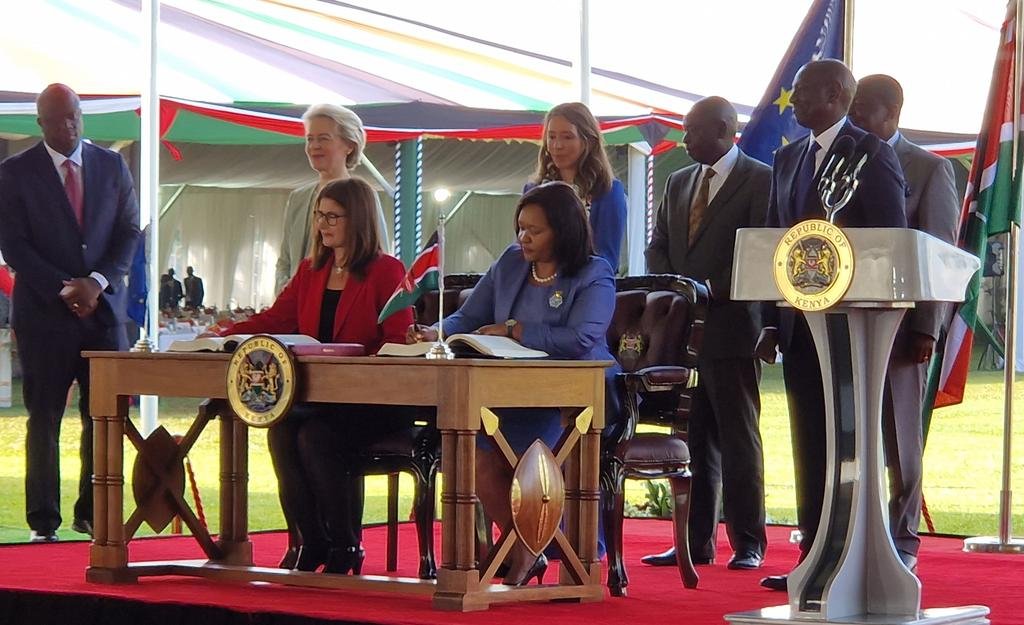
The long-awaited Economic Partnership Agreement (EPA) between the European Union and Kenya has finally come into force, marking a watershed moment in bilateral relations between Nairobi and Brussels. This comprehensive trade pact promises to reshape Kenya's economic landscape, offering both opportunities and challenges for local businesses.
Under the agreement, Kenyan exports will immediately enjoy duty-free and quota-free access to the lucrative EU market, with the exception of arms. This is expected to provide a significant boost to key export sectors such as horticulture, tea, and coffee. In return, Kenya has committed to gradually opening its market to EU imports over a 25-year transitional period, allowing sensitive sectors like agriculture time to adapt.
"This deal positions Kenya as a gateway for European investment into East Africa," said John Mutua, an economist at the Institute of Economic Affairs. "It's a vote of confidence in our economy and could catalyze much-needed job creation, particularly for our youth."
The EPA goes beyond traditional trade agreements by incorporating binding provisions on sustainable development. These include commitments to labor standards, gender equality, and environmental protection - areas that have become increasingly important to European consumers and investors.
Trade volumes between Kenya and the EU have been on an upward trajectory, reaching €3 billion in 2023, a 16% increase from 2018. The EU remains Kenya's largest export market and second-biggest trading partner overall. Unlike Kenya's trade relationships with other major partners, the EU-Kenya trade balance is relatively even, which economists say bodes well for long-term stability.
However, the agreement is not without its critics. Some local manufacturers have expressed concerns about increased competition from European imports and demanding assurances that this deal won't lead to de-industrialization. They have asked the government to be proactive in supporting local industries to become more competitive.
The EPA also has strategic implications beyond trade. As one of Africa's most stable democracies, Kenya is seen as a key partner for the EU in the region. The agreement is expected to deepen political and economic ties, potentially giving Nairobi more influence in continental affairs.
Importantly, the EPA remains open for other East African Community (EAC) members to join, supporting regional integration efforts. This could position Kenya as a hub for EU trade and investment in East Africa, provided the country can leverage its first-mover advantage.
Implementation of the EPA will be crucial. The agreement includes provisions for updating rules of origin within the first five years, which will be critical for determining which products benefit from preferential treatment. A dedicated chapter on economic cooperation also aims to enhance Kenya's competitiveness, supported by EU development assistance.
As Kenya navigates this new trade landscape, the government's ability to support local businesses in adapting to EU standards and accessing new markets will be key. The EPA offers a platform for economic diversification and industrial development, but realizing these benefits will require strategic planning and investment.
For Kenyan businesses, the message is clear: the EU market is now more open than ever, but competition will be fierce. Those who can innovate, meet stringent quality standards, and tap into European value chains stand to reap significant rewards in this new era of EU-Kenya economic cooperation.

.jpeg)